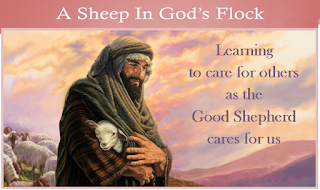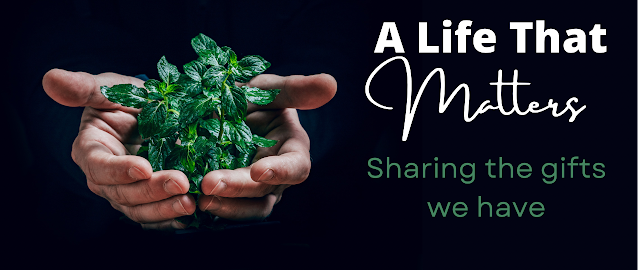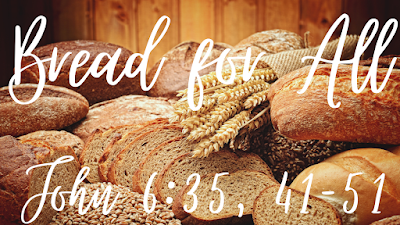Wandering (or Reflections on Divine Guidance and Nurturing Community)
Wandering can be good for the soul. As Shakespeare once wrote, “All that glitters is not gold.” Put another way by J.R.R. Tolkien in The Lord of the Rings, “Not all who wander are lost.” Tolkien was describing a character running from his rightful place as king. He knew his destiny, but it carried such weight he was not ready to fulfill his calling.
In my life, I have been a wanderer. After being involved in church during high school and looking to get into leadership, I was too self-involved or did not want to submit to the great weight of the role that I felt led toward, feeling not worthy of the responsibility, much like Tolkien’s character, although obviously not to that degree. I dropped out of many things in my early twenties and was suffering from undiagnosed anxiety and depression. It took another decade and, unfortunately, much more pain for me, not to mention therapy and healing, to get me to the point where I am in front of you. In my abandoning faith, it was only me who moved, not God. I came back to Jesus, seeking the comfort and safety only He can provide. What I’ve gotten out of it is more than I could ever imagine, one answered prayer being that I am standing in front of you this morning.
Today, we are talking about another sort of wanderer - shepherds. Before this week, I didn’t know as much about shepherds as I thought. If we had a job description for a shepherd, what would it include? Shepherds are the primary caregivers for sheep (and sometimes goats). They are needed around the clock, as predators don’t abide by union rules, as much as the Warner Brothers cartoons in my childhood made it seem otherwise. Some modern shepherds can care for as many as a thousand animals. Not only is the Shepherd on the lookout for predators who may attack, but they also want to protect their sheep from poisonous plants in the pasture. Insects or other water-borne parasites may introduce disease into the flock. It is the Shepherd who tends to the sick and nurses that animal back to health. Sometimes, the biggest threats to the herd may be the smallest in size. Think about that for a second. We tend to think about our threats to faith as the foxes and wolves of the world, but how many poisonous plants have we eaten to suffer the consequences because we feel that we deserve the poison just because we ate it? We hope and pray and most likely will survive the poison, but that poison isn’t the only toxic thing in our bodies. We don’t want or deserve poison. When it happens, we need complete healing, even from all those tiny thoughts that we deserve what we have received in life due to circumstances. We need to find our resting space in the tall grass and near the still waters. I hope during this hour, you can find a small break and see the Lord feeding into you.
It’s hard. I get it - with two jobs (for now), a wife, and two small children - the days don’t seem to end until everyone passes out in bed, and then there are STILL things that get missed. But in the middle of the hard days, there are beautiful moments, like Aaron drawing me a picture that I can put in my office or Ali singing a song that warms my heart. It’s about being in the moments that matter, like reading stories at bedtime, that the Shepherd comes out and through me.
There are two different kinds of shepherds between the two scriptures. In the Psalm, David is the author of these six short verses, and he paints the picture of a loyal and dependable leader in the life of his flock. He is presenting God as the Shepherd and telling the people of His attributes. Let me read it to you again, this time in the Contemporary English translation:
You, Lord, are my Shepherd. I will never be in need. You let me rest in fields of green grass.
You lead me to streams of peaceful water, and you refresh my life.
You are true to your name, and you lead me along the right paths.
I may walk through valleys as dark as death, but I won’t be afraid.
You are with me, and your Shepherd’s rod makes me feel safe.
You treat me to a feast while my enemies watch.
You honor me as your guest, and you fill my cup until it overflows.
Your kindness and love will always be with me each day of my life, and I will live forever in your house, Lord.
Who do you think the Shepherd in those lines is? Simply put - it’s God. This Shepherd is righteous and tending to the flock’s every need - not want - but need. These needs show in every line of scripture from “green pastures” to “the house of the Lord”; every verse is dripping with trust and thanksgiving of what the Shepherd provides. The safety and comfort of God can even find us in our deepest darknesses. Just like referenced in every book of the Bible - the author is not afraid because God is present. The picture painted through the Psalm is of a deep relationship, someone who feels completely safe with the provider. A well-known passage is sometimes used at funerals, but I want to challenge that perspective. It does talk about death but in the context of walking through the difficult moments in our lives and showing us actually how to live. This is from the God who CONQUERED DEATH - In our deepest darkness, God provides safety and comfort. Our God is right there with us in our isolation and deepest thoughts and leads us like a shepherd out of that valley without an ounce of fear. Not only out of the valley but as the psalmist says, our Shepherd will prepare a table for us in the presence of my enemies. In the ancient world, this is quite a statement since, socially, there was an elevated sense of honor and shame that we would be at a PLACE OF HONOR at His table. An onlooker could view the scene in a couple of ways: The protection and safety that God provides completely neutralized the threats from the outside, or the enemy has been captured and without weapons, looking on at the victory feast, no longer dangerous.
This contrasts with how the Shepherd in Jeremiah presents as unstable or even destructive, and their flocks are decimated. Let me read it for you again, this time in the Contemporary English translation. As I read, listen for the type of Shepherd or leader described. Pay attention to the differences from the Psalm.
“The Lord said: You leaders of my people are like shepherds that kill and scatter the sheep. You were supposed to take care of my people, but instead, you chased them away. So now I’ll take care of you, and believe me, you will pay for your crimes! I will bring the rest of my people home from the lands where I have scattered them, and they will grow into a mighty nation. I promise to choose leaders who will care for them like real shepherds. All of my people will be there, and they will never again be frightened.
Someday, I will appoint an honest king from the family of David, a king who will be wise and rule with justice. As long as he is king, Israel will have peace, and Judah will be safe. The name of this king will be “The Lord Gives Justice.”
What did you notice from this passage? I noticed that the shepherds are not friendly to their flock, and God is willing to punish them for what they’ve done. But who are the shepherds? In this verse, the context is the shepherds God is talking about are the political leaders of the nation of Israel, not just the king, but anyone who has a role. But there is hope that God will appoint new shepherds - or leaders - so that the people get the care they deserve. Without effective shepherds, those sheep would be off wandering. Someone would have to be actively terrible at shepherding to hurt the sheep or let them run away. The righteous Shepherd they are hoping for is so involved and deeply invested in the animals that they actively search for threats. Jeremiah continues his prophecy by telling them that the Lord holds those who have authority over their people accountable. The priests, the false prophets, and the king. They had all been failing their people by leading them into idolatry, injustice, and unfaithfulness.
Wandering is a pretty natural thing for sheep to do. And for people as well. People feed themselves in every imaginable way. In my wandering, I thought I could be clever and read and discern all on my own. What I didn’t know was that I needed a community. Those people whom Jeremiah talks about being driven away will reunite through God’s mercy, and the Spirit will bring them back together. Because the church or its culture or even these false teachings are not centered on the moving of the Spirit, the people are being driven away. That doesn’t sound familiar. Many are wondering in the church today why there are so many wandering away from the church. Have you asked but didn’t want to hear the answer? Do I have a brief explanation for you? No - I’m at the beginning of my journey to answering that question. It’s multi-layered, but one answer that comes back is that the church historically has been hypocritical at times and destructive at its worst. One of the reasons I’m in ministry is to help ask the questions to reverse that. My opinion is the church - as a whole, not just the UMC - has invested too heavily in fear and power rather than teaching the love and grace found with Jesus. This investment has driven more than one generation from the church, and coming out of our pandemic, we have a real opportunity to shift our assets and future investments to follow Jesus & His teachings.
The United Methodist Church has a Book of Social Principles, which is re-established after every General Conference session, every four years. The most recent one is from 2016, and in it, there is a section on the Nurturing Community. These social principles were with our church even before the merger in 1968; they go back even further to 1908. This section on the Nurturing Community has eighteen sections, so I will not be getting into each of them this morning. But relevant to us this morning is, “Primary for us is the gospel understanding that all persons are important - because they are human beings, created by God and loved through and by Jesus Christ, and not because they have merited significance.”
God loves us because we are His creation. Period. There is nothing we can do, say, or recite that will change how much God loves us. He did not grant us such power. But this also means that EVERYONE ELSE whom God created is worthy of God’s love. Have you shown anyone this week that God loves them? Was it done in a way that served you or them? Because there is a difference between giving unwanted things away and
Wandering is scary - and stressful. Staying on a path where you know where you’re going is comforting, yes, but getting off the road to somewhere new can be exciting. My dad likes IndyCar racing. I know this is the wrong time of the year to be talking about this - since it’s not around Memorial Day for the Indianapolis 500, but thinking about it during my sermon prep seemed to be helpful. Auto racing, in general, is pretty simple. Go forward, go fast, and make sure you have enough fuel to finish the race. There is predictability because there is a path for the racers to follow as varied as the tracks are. Deviate from the course at your peril. Every lap gets you one more step to the finish line. If that’s a formula for life, that sounds terrible.
Come along with me for an absurd example. Say there was a new race of 500 miles - but starting in Indianapolis, the winner needed a path, a course to evaluate. Drive 500 miles in any direction, and whoever finishes that distance in the quickest time wins. It sounds like a logistical nightmare, chaotic and impossible to keep track of. It’d be stressful for anyone trying to keep track of the drivers. Not having a clear path to the goal set would also be stressful for the drivers themselves. In a field of 33 drivers, how many of those drivers would go the same way? There’d be many arguing about results and who the “winner” of the race is. But you know what - each driver had a thrilling ride and will have stories to tell about the journey afterward. Jesus was never about winning, but he was about walking with people on their trips through life, ensuring that they had enough energy, encouragement, healing, and grace. This may be an absurd example, but lots of people get caught up in how their journeys need to look similar to someone else’s. It’s really something we, as people, need to let go of. We trust that the seeds God plants will get watered and enough sunlight to flourish.
Wandering is more than being lost. It can be a journey to finding ourselves and others. The tension of traveling needs to be resolved so it doesn’t turn into a more prominent wall to be overcome. Some wanderers are at it longer than others, but wandering is natural. It’s essential to find out things that we don’t want to do before finding out where God calls us to be, whether your calling is to be a king, a pastor, a scientist, or whatever - they’re all valid and necessary to the kingdom.
I want to challenge each of you to hear this message today to connect with me about the things you like about Bethany, any bit of your faith journey, or any ideas that we could implement to move forward and help form a vision of where it needs to go. I understand that no one person, including me, can formulate the church’s focus, but all we are doing is wandering without input from all involved.
Thank you, and Amen.




Comments
Post a Comment